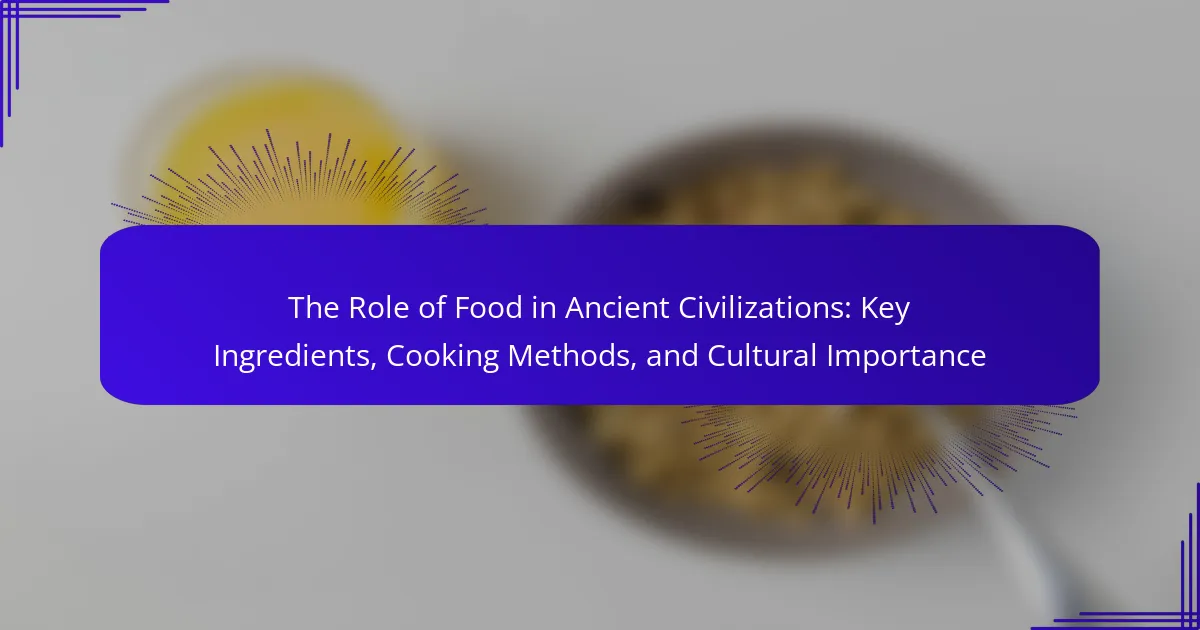What is the significance of food in ancient civilizations? Food was essential in ancient civilizations for sustenance, cultural identity, and social organization. It provided the necessary nutrients for survival and growth. Different civilizations developed unique agricultural practices based on their environment. For example, the Egyptians relied on the Nile for irrigation, cultivating crops like wheat […]

The Impact of Food Trucks on Urban Dining: Historical Context, Menu Innovations, and Community Engagement
What is the impact of food trucks on urban dining? Food trucks significantly enhance urban dining by providing diverse culinary options. They introduce unique menus that reflect local cultures and trends. This diversity attracts food enthusiasts and promotes culinary exploration. Food trucks also offer affordable dining choices, making gourmet experiences accessible. Their mobility allows them […]
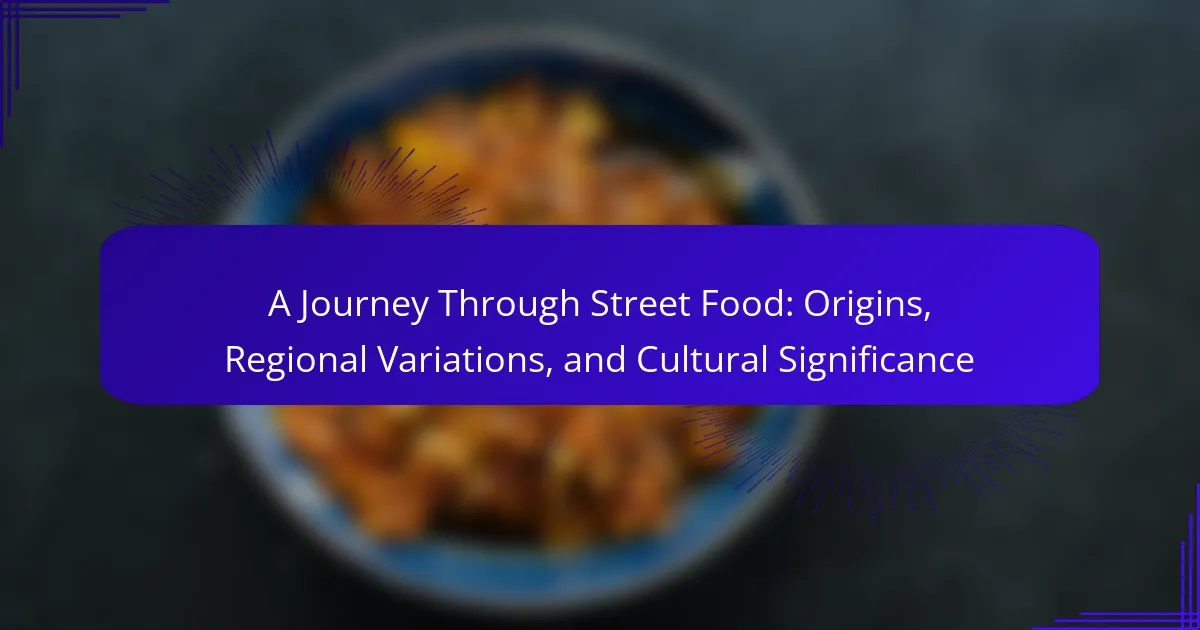
A Journey Through Street Food: Origins, Regional Variations, and Cultural Significance
What is Street Food and Its Historical Context? Street food refers to ready-to-eat food sold by vendors in public spaces. It is often prepared and served quickly, catering to people on the go. Historically, street food has roots in ancient civilizations. Archaeological evidence shows that street food was popular in Ancient Rome and Greece. Vendors […]
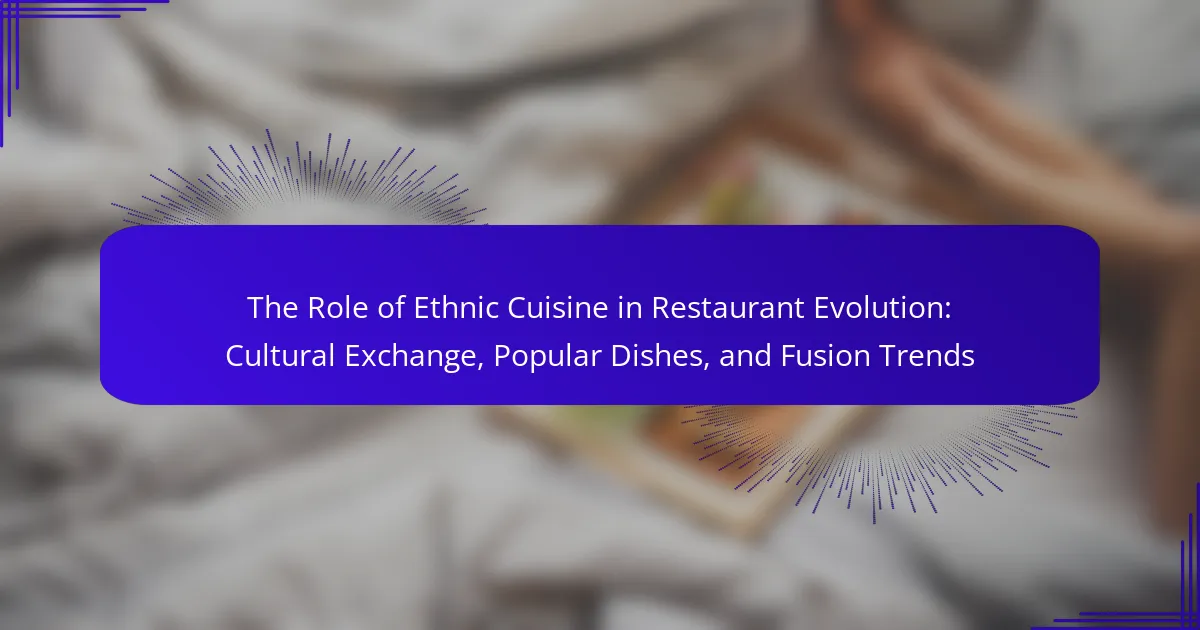
The Role of Ethnic Cuisine in Restaurant Evolution: Cultural Exchange, Popular Dishes, and Fusion Trends
What is the role of ethnic cuisine in restaurant evolution? Ethnic cuisine plays a significant role in the evolution of restaurants by introducing diverse flavors and cooking techniques. It enhances culinary variety and encourages cultural exchange among different communities. Ethnic restaurants often serve as gateways for diners to experience new cultures through food. This exposure […]
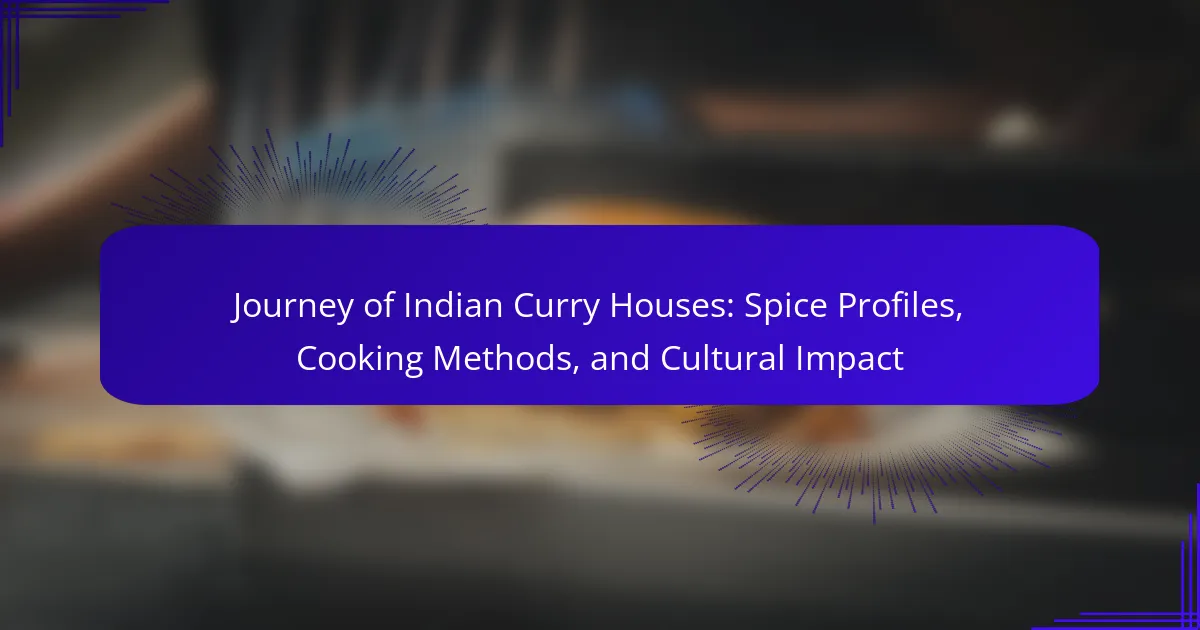
Journey of Indian Curry Houses: Spice Profiles, Cooking Methods, and Cultural Impact
What is the Journey of Indian Curry Houses? The journey of Indian curry houses began in India, where curry originated as a blend of spices and cooking techniques. Indian cuisine, particularly curry, was influenced by regional ingredients and traditions. The British colonial era introduced Indian food to the West, leading to the establishment of the […]
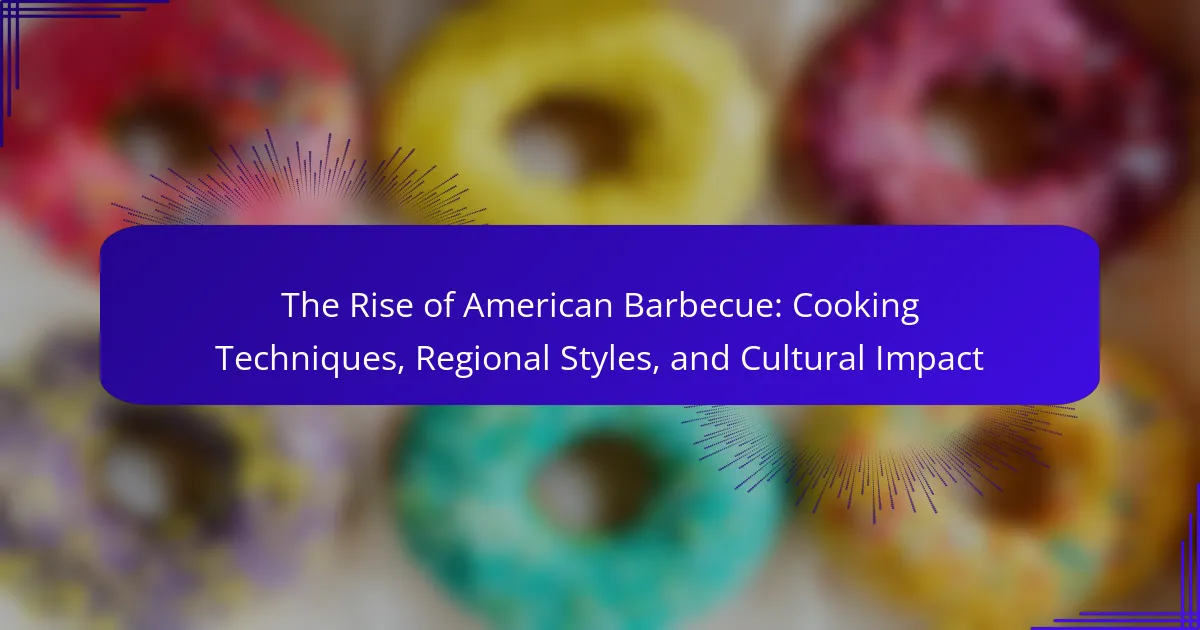
The Rise of American Barbecue: Cooking Techniques, Regional Styles, and Cultural Impact
What is American Barbecue? American barbecue is a cooking method that involves slow-cooking meat over indirect heat and smoke. This technique enhances flavor and tenderness. It typically uses various woods for smoking, such as hickory or mesquite. Different regions in the United States have distinct styles of barbecue. For example, Texas barbecue often features beef […]
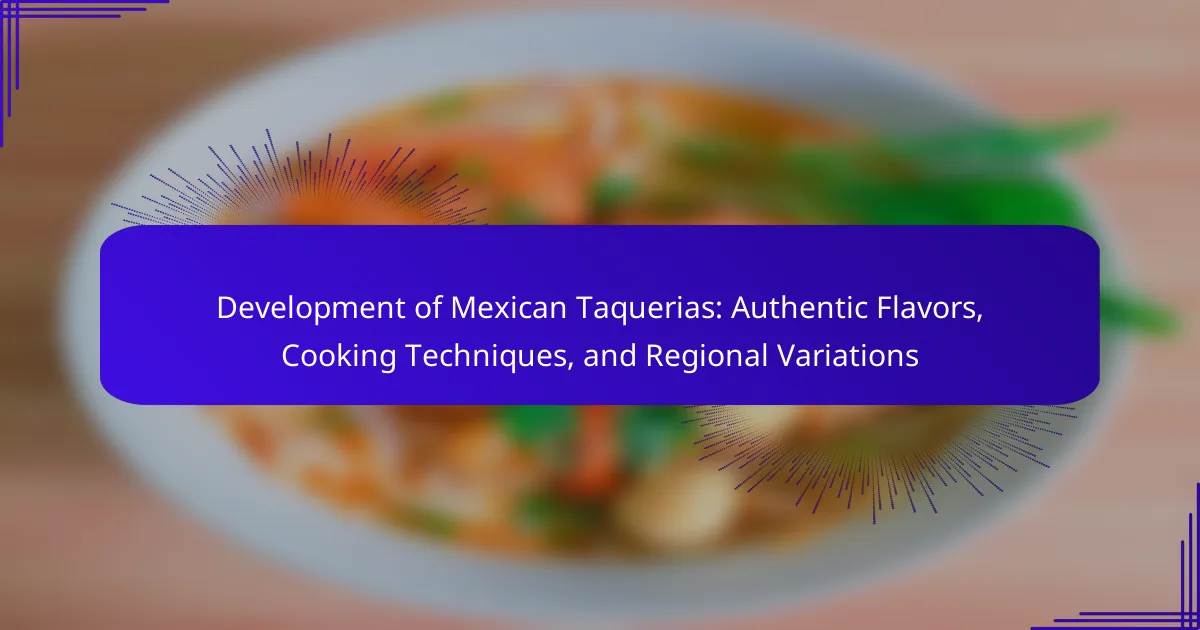
Development of Mexican Taquerias: Authentic Flavors, Cooking Techniques, and Regional Variations
What are Mexican Taquerias and their significance in culinary culture? Mexican taquerias are specialized eateries that focus on serving tacos, a staple of Mexican cuisine. They play a significant role in culinary culture by preserving traditional recipes and regional flavors. Taquerias often offer a variety of taco fillings, including meats, vegetables, and salsas. Each region […]
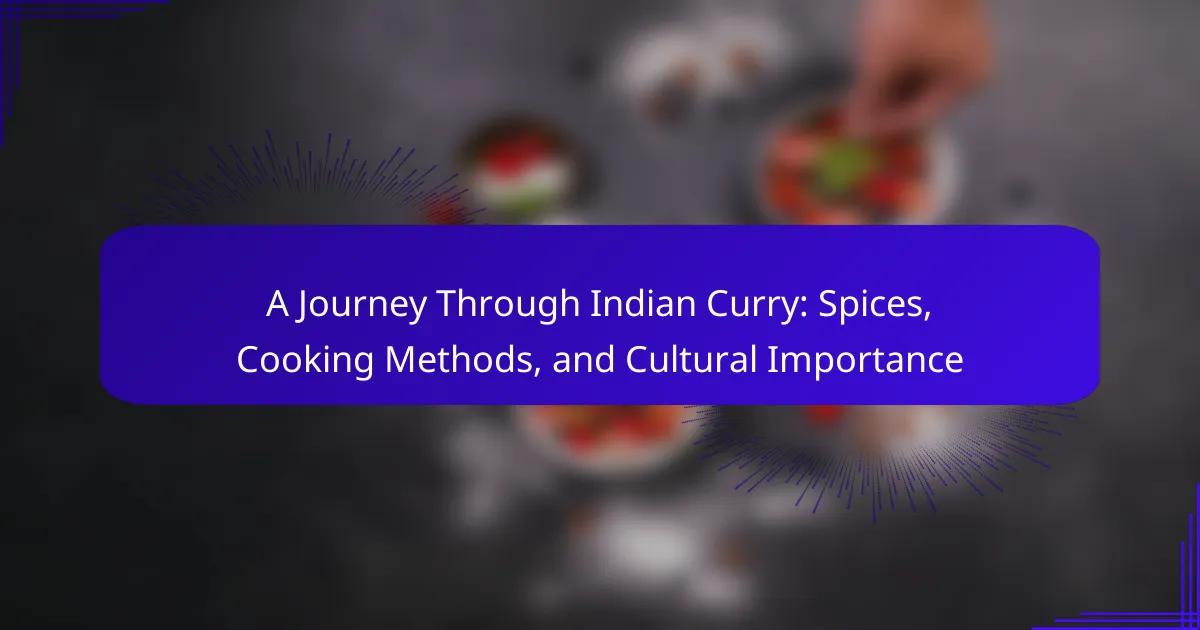
A Journey Through Indian Curry: Spices, Cooking Methods, and Cultural Importance
What is Indian Curry? Indian curry is a diverse range of dishes originating from the Indian subcontinent. It typically features a combination of spices, herbs, and other ingredients. Common components include vegetables, meat, and legumes. Each region in India has its own unique style of curry. For example, North Indian curries often use dairy products […]

The Impact of René Redzepi: Foraging, Nordic Cuisine, and Restaurant Philosophy
René Redzepi is a prominent chef known for his transformative impact on modern cuisine, particularly through his work with Nordic culinary traditions at his restaurant, Noma. This article explores Redzepi’s emphasis on foraging, local and seasonal ingredients, and the popularization of “New Nordic Cuisine,” which celebrates unique regional flavors and promotes sustainability in food practices. […]

The Impact of Food Trucks: Historical Emergence, Culinary Diversity, and Urban Culture
What are Food Trucks and Their Role in Urban Culture? Food trucks are mobile kitchens that serve food to the public, often at various urban locations. They offer diverse culinary options, catering to different tastes and preferences. Food trucks have gained popularity in urban culture due to their accessibility and affordability. They create a communal […]
